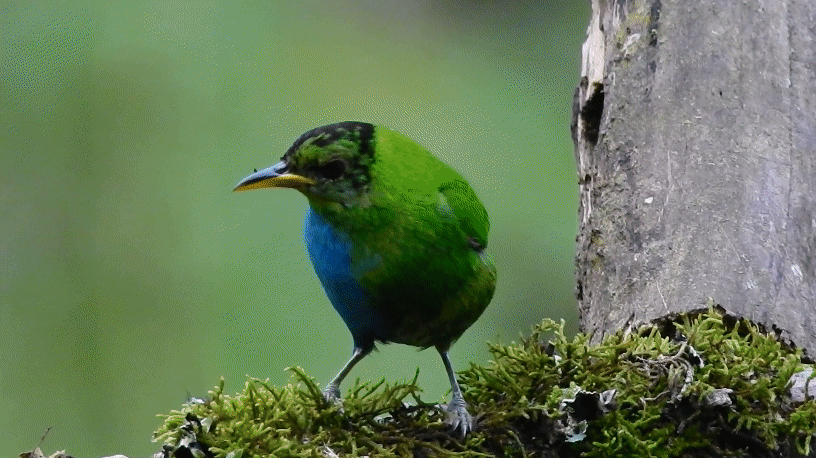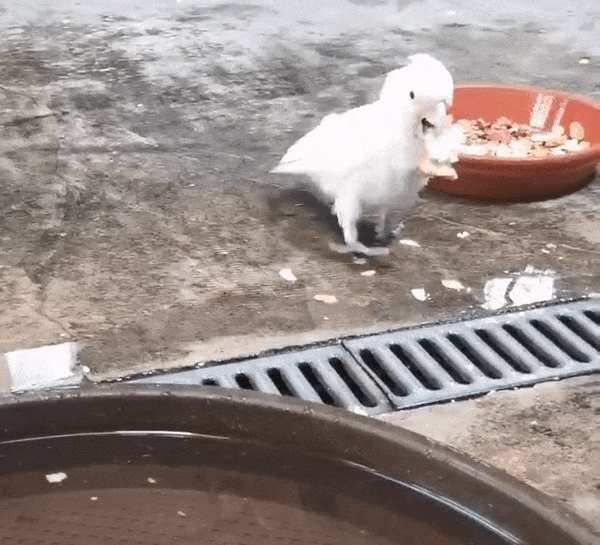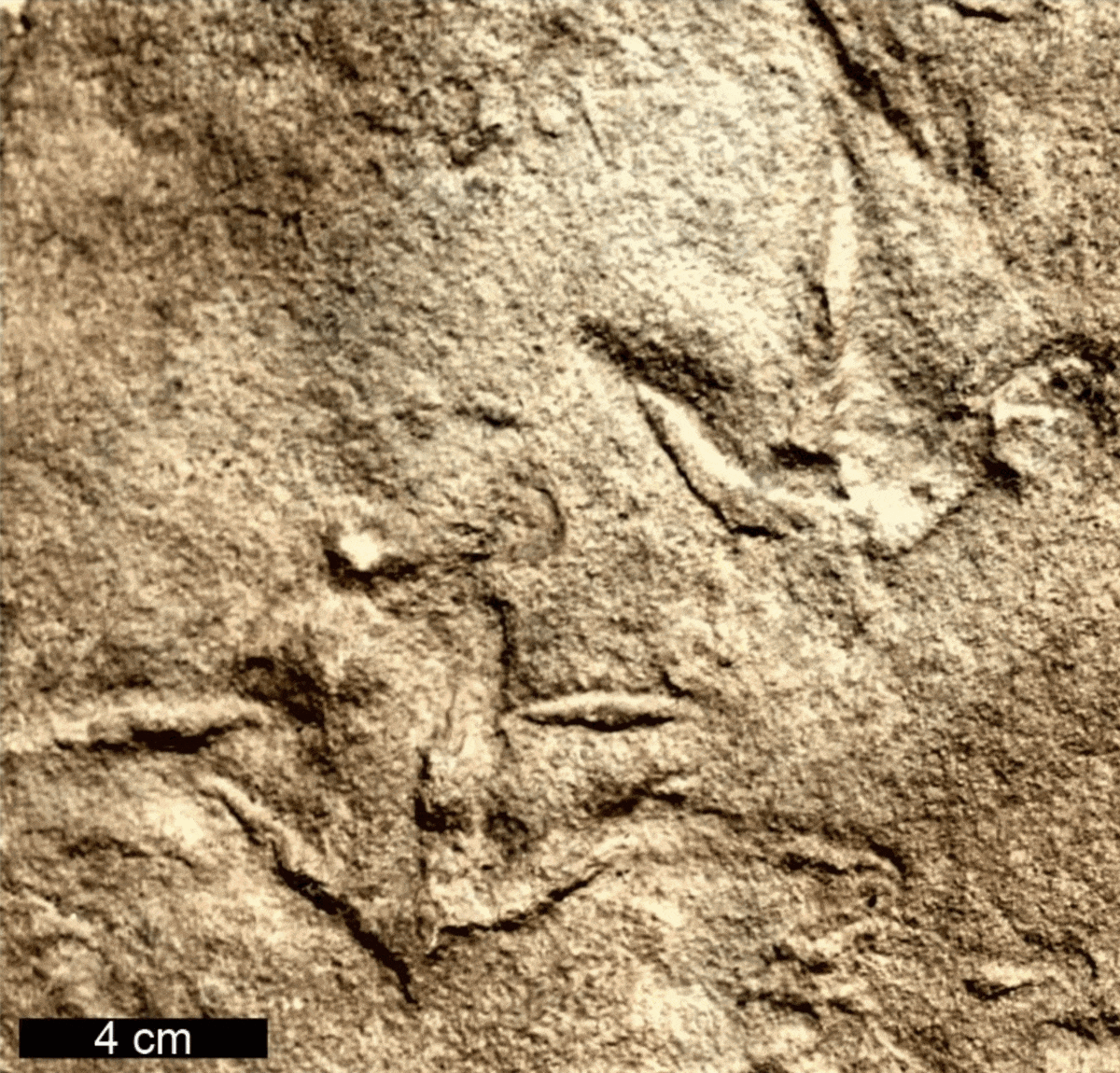New Research
Why Most Pregnant People Experience Morning Sickness—and How It Could Be Treated
A hormone produced by the fetus may induce nausea and vomiting during pregnancy, a new study finds
This 'Extremely Rare' Bird Is Half Female, Half Male
The green honeycreeper is only the second of its species ever observed with this condition—and the first recorded in more than 100 years
Neanderthal DNA May Help Explain Why Some People Are Early Risers
A new study finds a link between Neanderthal DNA and modern human genes related to the internal body clock, or circadian rhythm
Watch Cockatoos Dip Their Food in Water to Make It Soggy
A new study marks the first time that dunking behavior has been documented in parrots
Cats Prey on More Than 2,000 Different Species
A new study sheds light on just how many creatures domestic cats will eat—including hundreds that are threatened or endangered
Parts of China's Great Wall Are Protected by a 'Living Cover' of Biocrusts
The layer of lichen, moss and cyanobacteria helps shield the historic structure from erosion, a new study finds
Eels Can Genetically Modify Nearby Fish With Their Electrical Pulses
In laboratory experiments, gene transfer occurred in 5 percent of zebrafish larvae that were near eels when they discharged electricity
Could a 550-Mile Pipeline From the Ocean Save the Great Salt Lake? Scientists Say Probably Not
New research suggests the electricity costs would exceed $300 million per year and carbon dioxide emissions could approach one million metric tons annually
Ancient Egyptians Kept Baboons in Captivity and Mummified Their Remains
A new analysis of the animals' skeletal remains reveals a lack of sunlight and an inadequate diet
Once Thought to Be Plants, These Rare Fossils Are Actually Baby Turtles, Scientists Say
The prehistoric specimens found in Colombia could represent one of the oldest and largest turtle species to ever exist
This Simple Trick Will Help You Brew Better Coffee, According to Scientists
New research explores how moisture affects static electricity and clumping of ground coffee beans
DNA Pulled From Paw Prints May Help Researchers Study Elusive Polar Bears
As rising temperatures threaten the Arctic mammals, scientists are turning to new, non-invasive methods to study them
Male Mosquitoes May Have Once Sucked Blood, Amber Fossils Suggest
Today, only female mosquitoes feed on the blood of animals, while males are satisfied with plant juices
'Bone Biographies' Reconstruct Lives of Medieval Cambridge Commoners
Researchers have used skeletal remains to compile information about the lives of ordinary residents of the city
Scientists Examine Brain Cells That Control How Much Mice Eat
The study—the first to look at these neurons while animals are awake and consuming food—could tell us about our own appetites
Brain Implants Show Promise for People With Traumatic Brain Injuries in Small Study
Electrodes placed in the brains of five patients led to "profound" improvements in cognitive function, even years after their injuries
Here's What Can Cause Itchiness, According to New Research
Scientists discovered a connection between a bacteria linked to eczema and an itch-causing enzyme in a study of mice
Mysterious Creatures With Bird-Like Feet Made These Tracks Long Before Birds Evolved
The footprints pre-date the earliest known fossils of avian ancestors by roughly 60 million years, per a new study
Scientists Uncover a Golden Mole Species Thought to Be 'Possibly Extinct'
A scent-detecting dog led the team to the discovery in South Africa, and traces of mole DNA helped confirm it
Astronomers Discover Rare Solar System Where Planets Orbit in Mathematical Harmony
The "resonant" planets could provide insight about how such systems form and evolve—and why our own solar system is not synced up
Page 9 of 241
:focal(1061x707:1062x708)/https://tf-cmsv2-smithsonianmag-media.s3.amazonaws.com/filer_public/1b/72/1b72e2e9-a8ca-4e4f-8d68-c66659ff2a6c/gettyimages-1392122841.jpg)

:focal(3000x2000:3001x2001)/https://tf-cmsv2-smithsonianmag-media.s3.amazonaws.com/filer_public/5b/13/5b134ecf-b45c-4776-adda-34a0c4cdf3b7/pexels-acharaporn-kamornboonyarush-1028741.jpg)

:focal(960x640:961x641)/https://tf-cmsv2-smithsonianmag-media.s3.amazonaws.com/filer_public/f6/f3/f6f3493a-467f-4474-8c52-af5d021414b6/cat-5778777_1920.jpg)
:focal(2048x1541:2049x1542)/https://tf-cmsv2-smithsonianmag-media.s3.amazonaws.com/filer_public/10/85/10859f4f-3e95-462f-a0a0-392f2612eed9/close-up_view_of_biocrusts_on_the_great_wall_4.jpg)
:focal(1060x706:1061x707)/https://tf-cmsv2-smithsonianmag-media.s3.amazonaws.com/filer_public/2d/32/2d32e43f-aa3c-4339-8d67-e762196845be/gettyimages-174522285.jpg)
:focal(400x267:401x268)/https://tf-cmsv2-smithsonianmag-media.s3.amazonaws.com/filer_public/ba/64/ba64dfa3-33f5-40dc-85d0-f2223f0b2942/gettyimages-1332144553_1.jpeg)
:focal(1440x1083:1441x1084)/https://tf-cmsv2-smithsonianmag-media.s3.amazonaws.com/filer_public/e6/f7/e6f74418-2780-4c4a-b8c8-94a4f144f2a7/baboons.jpeg)
:focal(502x325:503x326)/https://tf-cmsv2-smithsonianmag-media.s3.amazonaws.com/filer_public/84/a3/84a34abe-ef48-4370-82bc-d6752b1342ce/ezgif-1-73be12d57b.png)
:focal(960x640:961x641)/https://tf-cmsv2-smithsonianmag-media.s3.amazonaws.com/filer_public/1f/c7/1fc74f90-a9a9-4b3a-8e11-029c8af7b1f2/coffee-4334647_1920.jpg)
:focal(1000x671:1001x672)/https://tf-cmsv2-smithsonianmag-media.s3.amazonaws.com/filer_public/81/de/81dea282-dec0-4c63-93ac-bf1872179d5f/natdiglib_34179_extralarge.jpg)
:focal(2750x1781:2751x1782)/https://tf-cmsv2-smithsonianmag-media.s3.amazonaws.com/filer_public/4b/2b/4b2b929b-94dc-45f7-add4-c6373db676f8/gettyimages-540806304.jpg)
:focal(450x315:451x316)/https://tf-cmsv2-smithsonianmag-media.s3.amazonaws.com/filer_public/89/68/89689564-c0d6-4e1d-ac17-590973b16b25/marketscene-900x627.jpeg)
:focal(1060x707:1061x708)/https://tf-cmsv2-smithsonianmag-media.s3.amazonaws.com/filer_public/29/88/29882ef5-a214-4c4f-aafb-2113d56143ae/gettyimages-1342113481.jpg)
:focal(400x229:401x230)/https://tf-cmsv2-smithsonianmag-media.s3.amazonaws.com/filer_public/5c/f9/5cf9b986-b03c-4983-a6e9-12c4640b0622/gettyimages-1607068544.jpeg)
:focal(400x267:401x268)/https://tf-cmsv2-smithsonianmag-media.s3.amazonaws.com/filer_public/45/b8/45b8d233-f443-4a76-a170-3464ef094741/gettyimages-1573800978.jpeg)

:focal(2016x1517:2017x1518)/https://tf-cmsv2-smithsonianmag-media.s3.amazonaws.com/filer_public/e0/a0/e0a00c5e-4103-49be-9ed0-7682e2352a89/20221116_063506.jpg)
:focal(1500x1000:1501x1001)/https://tf-cmsv2-smithsonianmag-media.s3.amazonaws.com/filer_public/d7/bc/d7bcd18a-17e2-46e6-b97f-a20f60f18bf5/illustration_orbit-geometry_credit-thibaut-roger-nccr-planets_1.jpg)